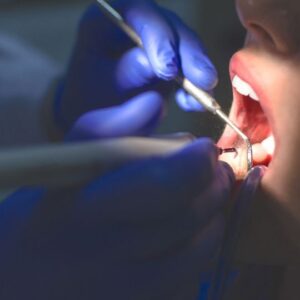 Dental coverage ensures individuals and families have access to necessary dental care. Understanding the nuances of dental coverage, including what is covered and what isn’t, is important for making informed decisions about oral health.
Dental coverage ensures individuals and families have access to necessary dental care. Understanding the nuances of dental coverage, including what is covered and what isn’t, is important for making informed decisions about oral health.
Understanding Covered and Non-covered Benefits
Dental insurance generally covers a scope of preventive, diagnostic, and treatment services. However, not all procedures may be fully covered by insurance plans. These procedures fall under the non-covered benefits category, meaning the insurance provider does not pay for them.
Importance of Non-covered Benefits
Cost of Dental Procedures
Non-covered benefits often include elective or cosmetic procedures that insurance providers deem as not medically necessary. While these procedures may not be covered by insurance, they are still crucial for maintaining dental health and addressing aesthetic concerns.
Dental Health Maintenance
Even though specific treatments may not be covered by insurance, they are crucial for preventing dental issues and maintaining oral health. For example, routine dental check-ups, cleanings, and fluoride treatments may not always be covered by insurance but are essential for preventing more serious dental problems in the future.
Misconceptions About Non-covered Benefits
Not Equating to Unnecessary Treatment
One common misconception is that non-covered benefits are unnecessary and can be foregone. However, just because a procedure is not covered by insurance does not mean it is not essential for maintaining dental health. Ignoring necessary treatments due to lack of insurance coverage can lead to more significant dental issues, potentially resulting in higher costs.
Importance of Dental Check-ups
Regular dental check-ups are vital for catching dental problems early on and preventing them from escalating into more serious problems. While some insurance plans may not fully cover these preventive services, they are instrumental in avoiding costly and invasive treatments in the future.
Strategies for Managing Non-covered Benefits
Budgeting for Dental Expenses
Since not all dental procedures are covered by insurance, it’s essential to budget for out-of-pocket expenses. Setting aside funds specifically for dental care can help cover the costs of non-covered benefits and ensure access to necessary treatments when needed.
Exploring Alternative Payment Options
For procedures that are not covered by insurance, exploring alternative payment options such as dental savings plans, payment plans offered by dental offices, or seeking treatment at dental schools can help make dental care more affordable.
Don’t have dental insurance? No worries!
Explore Our Exclusive In-House Savings Plan
Are you among the many Americans without dental insurance? Your family deserves affordable dental care, and we’ve tailored an economical, in-house discount plan just for you. Unlike traditional insurance, our plan operates as an in-office discount health program. Simply pay a reasonable annual fee to join. This grants you and your family access to our comprehensive services at a discounted rate of 20%, including routine check-ups covered within your annual fee. Lower your dental expenses and enjoy the reassurance of a cost-effective dental health plan that adapts to your family’s evolving needs.
Conclusion
Understanding insurance coverage, including non-covered benefits, is crucial for optimal oral health. While some treatments may not be covered by insurance, they are still essential for preventing dental issues and ensuring overall well-being. Individuals can effectively manage their oral health care needs by budgeting for dental expenses and exploring alternative payment options.
FAQs
Non-covered benefits may not be deemed medically necessary by insurance providers but can still be essential for maintaining dental health.
If a procedure isn’t covered by insurance, it’s essential to discuss alternative payment options with your dentist and budget for the expense accordingly.
Regular dental check-ups are critical for preventive care, regardless of insurance coverage. Skipping them can lead to more significant dental issues in the future
Budgeting for dental expenses ensures that you can cover the costs of non-covered benefits and access necessary treatments when needed.
